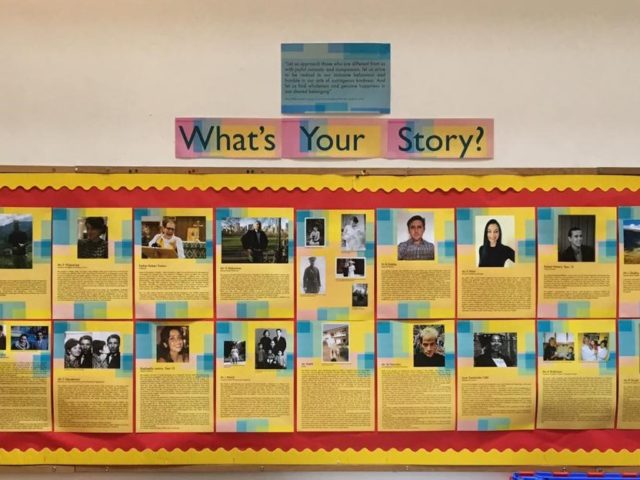I have mused before on the perplexing dilemma which faces parents and careers: the children we love and for whom we are responsible, who used to hang on our every word, at the very moment when they have to make their ‘big’ decisions which will play out in their move into employment – GCSEs, A levels and higher education – start curling their lips at our words of wisdom, and develop, at best, the most selective of hearing when we ruminate on their futures. And yet, if another adult, unconnected with enforcing rules at home, utters an opinion on whether chemistry or geography will prepare our children better for the law, that advice takes root with the unshiftable certainty of gospel. More confusing still, if we share our advice with our friends’ children, we meet with respectful credulity!
Last week our Year 10s rounded off their exams with the chance to sample sixth form subjects and sixth form routines: five options were on the table (they will be able to choose four subjects in Year 12), and our Director of Studies worked his customary wizardry to devise a timetable for a day of taster lessons. This year, more than ever before, we decided to test out subjects not on offer in Year 11 and, rather sensibly I felt, pupils had a crack at politics or economics or philosophy or art history.
As parents and carers of Year 10 will have heard, we suggest that pupils choose what they like and what they are good at. I am particularly keen to emphasise the former: if we like doing something, we are much more likely to exercise our discretionary effort and to work harder than strictly is required, and thus to tailor our knowledge and understanding around what we have committed to the subject, rather than to an exam specification. The advantage to that is that our motivation will, like our personalities, be different and unique, and our subject knowledge will have the flavour of adolescent authenticity rather than exam-driven, or school-driven, utility. But there is a longer-lasting advantage in the lessons we learn about ourselves, and about what will make us attractive to, and successful with, our future employers: those willing to use their discretionary effort, to go that bit further, will have unlocked the difference between being the agile-minded, high-flying student (the individual in competition) and the industrious, cooperative and flexible potential employee (the collaborative team-worker who knows a job’s not done till it’s finished). In the adolescent mind, it’s in passion for a subject that we first tap into that well of discretionary effort. (Another reason not to tell our young that there is a hierarchy of good and better subjects!).
So far, so good. But I was quite struck to learn recently, from our in-house employability specialist, Amandeep Jaspal, that studies are showing that academic performance is enhanced when external speakers come into speak to school children about work and employment. Initially, careers and employability programmes set out to improve the decision-making by school-age young people, to ensure that they maximise their life-chances of landing fruitful and enjoyable careers. However, it seems that allying an interest in what is to come with what is to be done creates energy and interest, and fires up pupils with greater commitment, whether or not the programmes deliver greater certainty over the choices to make.
I wondered whether this is a response to the presence of an impartial outsider taking a keen, if detached, interest in us, in who we are, and in what we might become. Perhaps just taking the time to ask what it all might add up to lifts the sense of one being a process of someone else’s devising, and gives us a belief that we can pull levers ourselves, and take both responsibility and control.
At any rate, I’m not alone in having seen our Year 10s almost visibly grow these past days, as they try our A levels for size and dip their toes into the world of work. Next up are interviews for both them and their older counterparts in Year 12 (huge thanks to the volunteer parents and alumni who are offering their time, emotional intelligence and professional expertise!) – a fascinating journey as they begin to look out, while we look on!

